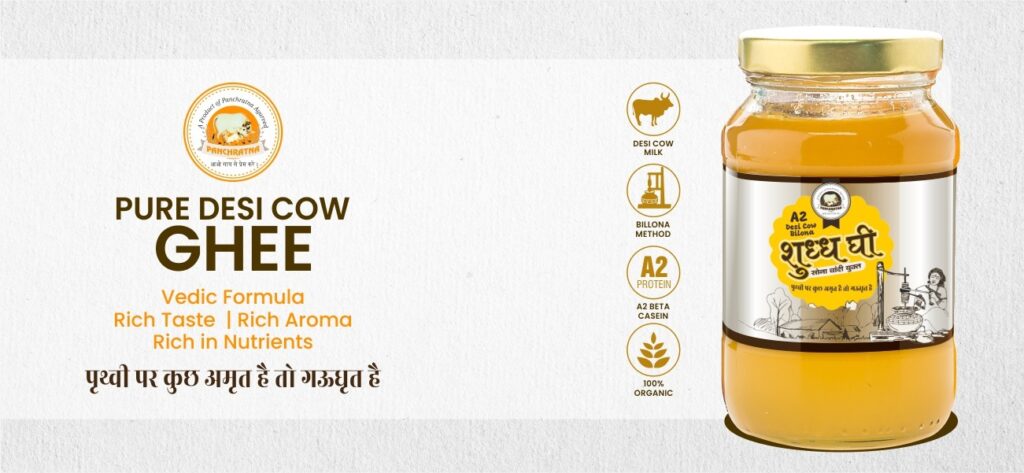The Sustainable Journey of A2 Cow Ghee: Nurturing People, Animals, and the Planet
Introduction:
In an era where sustainability is paramount, conscientious consumers seek products that not only benefit their health but also uphold ethical and environmental values. In this blog post, we’ll delve into the sustainable practices behind A2 cow ghee production, exploring how pasture-based farming, animal welfare standards, and community support contribute to a healthier planet and happier communities.
Exploring Sustainability in A2 Cow Ghee Production:
- Pasture-Based Farming Practices:
- A2 cow ghee begins with the wholesome milk of pasture-raised cows, who graze freely on nutrient-rich grasslands. Pasture-based farming promotes biodiversity, enhances soil health, and reduces the carbon footprint associated with intensive feedlot operations.
- Animal Welfare Standards:
- At the heart of sustainable dairy farming is a commitment to animal welfare. A2 cow ghee producers prioritize the well-being of their cows, providing spacious living environments, access to fresh air and clean water, and veterinary care when needed. Happy, healthy cows produce higher-quality milk, ensuring the integrity of the final product.
- Regenerative Agriculture Practices:
- Many A2 cow ghee producers embrace regenerative agriculture principles, which focus on restoring ecosystem health and resilience. By implementing practices such as rotational grazing, cover cropping, and composting, farmers regenerate soil fertility, sequester carbon, and mitigate climate change impacts.
- Supporting Local Dairy Communities:
- Sustainable A2 cow ghee production goes beyond environmental stewardship to support local dairy communities. By sourcing milk from small-scale farmers and cooperatives, producers foster economic vitality, preserve cultural heritage, and strengthen rural livelihoods. This direct connection between producers and consumers promotes transparency, traceability, and trust in the supply chain.
The Environmental Impact of A2 Cow Ghee:
- Compared to conventional dairy farming practices, sustainable A2 cow ghee production has a lower environmental footprint. Pasture-based farming reduces greenhouse gas emissions, conserves water resources, and minimizes reliance on synthetic inputs. By choosing A2 cow ghee, consumers can support regenerative agriculture and contribute to a more sustainable food system.
Conclusion:
- As consumers increasingly prioritize sustainability and ethical considerations in their purchasing decisions, A2 cow ghee emerges as a shining example of responsible food production. From pasture to plate, the journey of A2 cow ghee embodies a holistic approach to sustainability, nourishing both people and the planet. By supporting producers who uphold these values, we can create a brighter, more sustainable future for generations to come.

For More Details And Inquiry For Retail and Bulk Contact Below
Haresh Thakar
Whatsapp +919979055055
Email. gaaymaata@gmail.com
Link to buy this products: https://panchratnaayurved.com/product-category/food-beverges/ghee/
